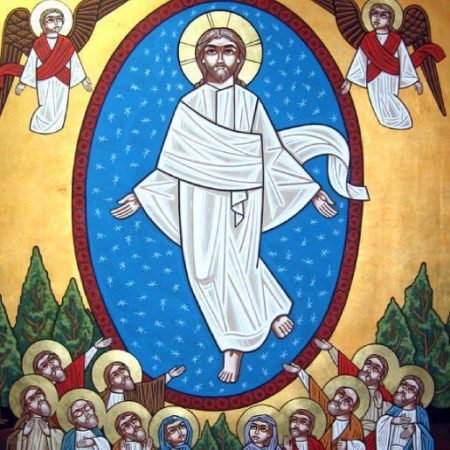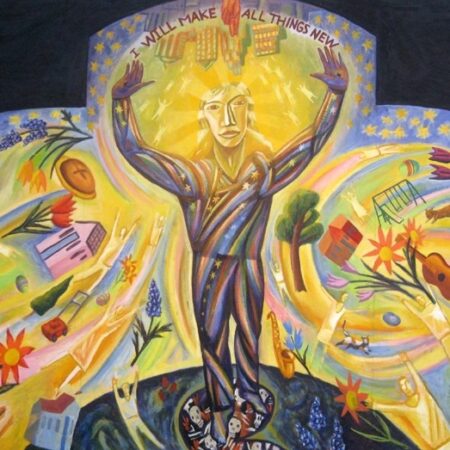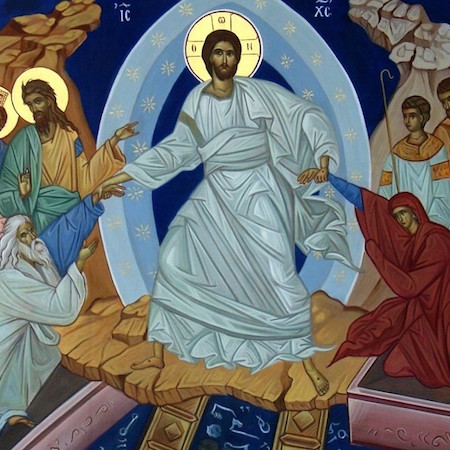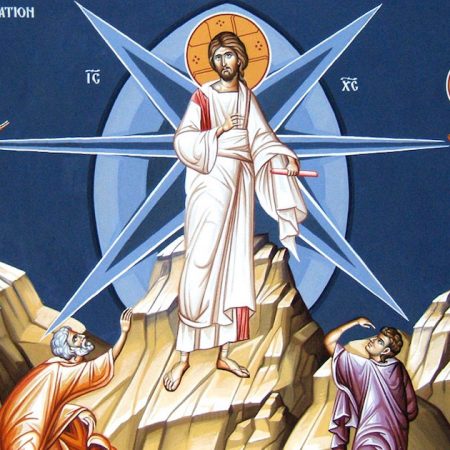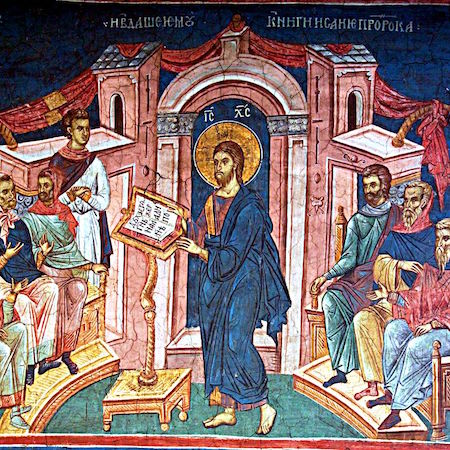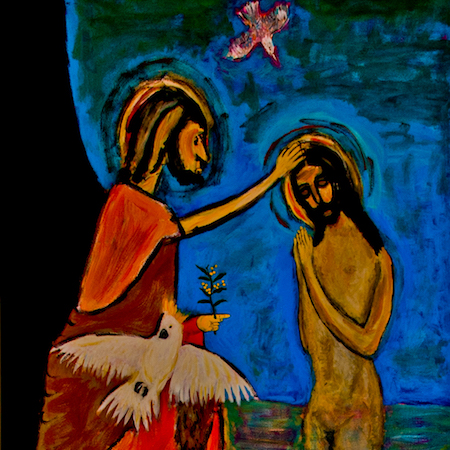The ascension is the completion of the cosmic liturgy that frees us from our entanglement in sin, lifts us into the holy of holies, and sends us forth as the body of Christ for the world.
Jesus wants to heal us from all that would diminish us, and he also wants us to cooperate with that by really wanting it and envisioning ourselves free.
In our worship we drink in the vision of heaven and earth made one so that our yearning might be fuelled; strengthening us against despair and empowering us to strive for the renewal of the world.
Resurrection keeps happening and keeps changing the world and overcoming the hostile deathly powers despite our inability to believe.
True forgiveness, which we encounter most fully in the risen Christ, does not gloss over the past but revisits it fully and carefully that we may be fully set free from it.
The whole story of the universe, from creation to ultimate redemption, is held in God’s hands and revealed in the crucified and risen Christ, and all our stories are gathered safely into that larger story.
The life-changing implications of the resurrection can be just as bewildering and impossible to get our heads around as the resurrection itself.
Knowing Jesus intimately is the most important thing of all, but many of our otherwise good gifts and concerns are constantly getting in the way.
If you set yourself against the other, you also cut yourself off from the Father who loves you both. You diminish yourself, cut off the other, and break the Father’s heart.
God’s ways of abundance and grace are almost incomprehensible to those of us who have been shaped by the world’s ways of scarcity and merit based rewards and punishments.
We wait for a Saviour who will bring the Kingdom of God – a kingdom of which we see many foretastes and which we strive to live for in the here and now.
Temptation is something we all have to deal with, and Jesus shows the way in dealing with it.
The glory that has been seen in Jesus can shine forth in us, but there will be obstructions to be purged and commitments to be made first.
The call to love our enemies is not a new law to slave at, but a call into a culture of love so wild and free and strong that no one can hate it out of us.
There is a fundamental culture clash between those who put their trust in God and those who pursue wealth, comfort and celebrity.
When we truly encounter God in worship, we see everything in all its splendour and horror and are transformed for mission.
God is love, and so love is the only real measure of spiritual maturity or accomplishment.
Jesus’s agenda, which we are called to follow, is about healing, liberating and gathering in the excluded, not purifying the community by excluding anyone.
All-in commitment is unfashionable, but it is often what God needs from us to allow the richest blessings to flow.
In baptism we follow Jesus in being “ordained” and empowered for mission.

